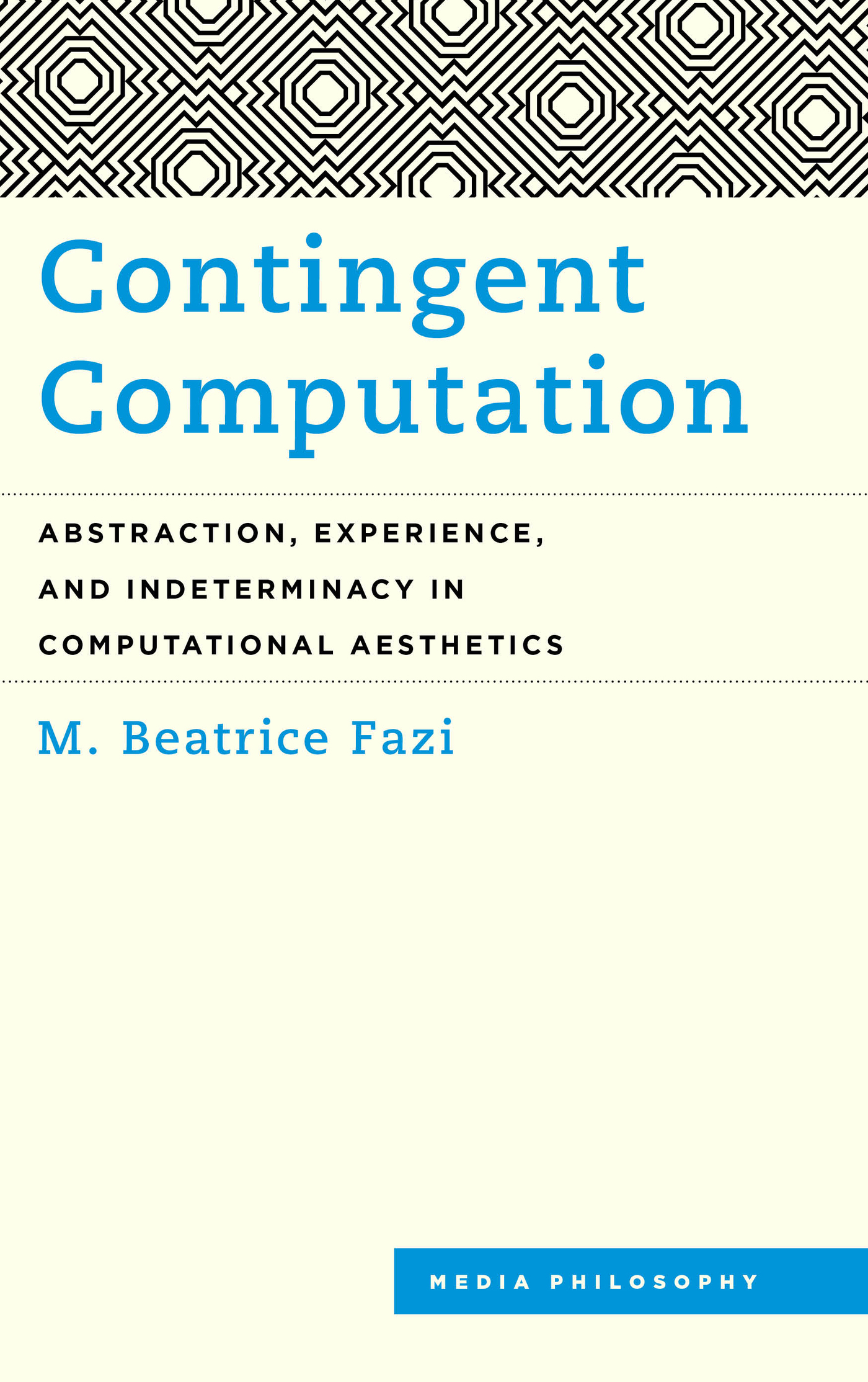Contingent Computation
MEDIA PHILOSOPHY
SERIES EDITORS
Eleni Ikoniadou, Lecturer in Media and Cultural Studies at the London Graduate School and the School of Performance and Screen Studies, Kingston University
Scott Wilson, Professor of Cultural Theory at the London Graduate School and the School of Performance and Screen Studies, Kingston University
The Media Philosophy series seeks to transform thinking about media by inciting a turn towards accounting for their autonomy and eventness, for machine agency, and for the new modalities of thought and experience that they enable. The series showcases the transcontinental work of established and emerging thinkers whose work engages with questions about the reshuffling of subjectivity, of temporality, of perceptions and of relations vis--vis computation, automation, and digitalisation as the current 21st century conditions of life and thought. The books in this series understand media as a vehicle for transformation, as affective, unpredictable, and non-linear, and move past its consistent misconception as pure matter-of-fact actuality.
For Media Philosophy, it is not simply a question of bringing philosophy to bear on an area usually considered an object of sociological or historical concern, but of looking at how developments in media and technology pose profound questions for philosophy and conceptions of knowledge, being, intelligence, information, the body, aesthetics, war, death. At the same time, media and philosophy are not viewed as reducible to each other's internal concerns and constraints and thus it is never merely a matter of formulating a philosophy of the media; rather the series creates a space for the reciprocal contagion of ideas between the disciplines and the generation of new mutations from their transversals. With their affects cutting across creative processes, ethico-aesthetic experimentations and biotechnological assemblages, the unfolding media events of our age provide different points of intervention for thought, necessarily embedded as ever in the medium of its technical support, to continually re-invent itself and the world.
The new automatism is worthless in itself if it is not put to the service of a powerful, obscure, condensed will to art, aspiring to deploy itself through involuntary movements which none the less do not restrict it.
Eleni Ikoniadou and Scott Wilson
Software Theory: A Cultural and Philosophical Study, Federica Frabetti
Media After Kittler, edited by Eleni Ikoniadou and Scott Wilson
Chronopoetics: The Temporal Being and Operativity of Technological Media, Wolfgang Ernst, translated by Anthony Enns
The Changing Face of Alterity: Communication, Technology and Other Subjects, edited by David J. Gunkel, Ciro Marcondes Filho and Dieter Mersch
Technotopia: A Media Genealogy of Net Cultures, Clemens Apprich, translated by Aileen Derieg
Recursivity and Contingency, Yuk Hui (forthcoming)
Contingent Computation
Abstraction, Experience, and
Indeterminacy in
Computational Aesthetics
M. Beatrice Fazi

London New York
Published by Rowman & Littlefield International, Ltd.
6 Tinworth Street, London SE11 5AL, United Kingdom
www.rowmaninternational.com
Rowman & Littlefield International, Ltd., is an affiliate of Rowman & Littlefield
4501 Forbes Boulevard, Suite 200, Lanham, Maryland 20706, USA
With additional offices in Boulder, New York, Toronto (Canada), and London (UK)
www.rowman.com
Copyright 2018 by M. Beatrice Fazi
All rights reserved. No part of this book may be reproduced in any form or by any electronic or mechanical means, including information storage and retrieval systems, without written permission from the publisher, except by a reviewer who may quote passages in a review.
British Library Cataloguing in Publication Information
A catalogue record for this book is available from the British Library
ISBN: HB 978-1-78660-608-2
Library of Congress Cataloging-in-Publication Data
Names: Fazi, M. Beatrice, 1981 author.
Title: Contingent computation : abstraction, experience, and indeterminacy in computational aesthetics / M. Beatrice Fazi.
Description: Lanham : Rowman & Littlefield International, 2018. | Series: Media philosophy | Includes bibliographical references and index.
Identifiers: LCCN 2018023183 (print) | LCCN 2018033860 (ebook) | ISBN 9781786606099 (ebook) | ISBN 9781786606082 (cloth : alk. paper)
Subjects: LCSH: ComputersPhilosophy. | Aesthetics.
Classification: LCC QA76.167 (ebook) | LCC QA76.167 .F39 2018 (print) | DDC 004.01dc23
LC record available at https://lccn.loc.gov/2018023183
 TM The paper used in this publication meets the minimum requirements of American National Standard for Information Sciences Permanence of Paper for Printed Library Materials, ANSI/NISO Z39.48-1992.
TM The paper used in this publication meets the minimum requirements of American National Standard for Information Sciences Permanence of Paper for Printed Library Materials, ANSI/NISO Z39.48-1992.
Printed in the United States of America
Acknowledgements
I would like to thank the editors of the book series Media Philosophy, Eleni Ikoniadou and Scott Wilson, as well as Sarah Campbell, Isobel Cowper-Coles, and Natalie Linh Bolderston at Rowman & Littlefield International, for believing in this project and for their valuable assistance.
Many colleagues and friends have offered advice and support during the writing of this book. In particular, I wish to express my gratitude to Caroline Bassett, David M. Berry, Trine Bjrkmann Berry, Giulia Bozzi, Tom Bunyard, Howard Caygill, Antonella De Santo, Michael Dieter, Mike Featherstone, Jonathan Fletcher, Matthew Fuller, Andrew Goffey, Olga Goriunova, Graham Harwood, N. Katherine Hayles, Caroline Heron, Tim Hitchcock, Michael Jonik, Tim Jordan, Giuseppe Longo, Celia Lury, Lorenzo Magnani, Sally Jane Norman, Eleonora Oreggia, Kate ORiordan, Jussi Parikka, Luciana Parisi, Ben Roberts, Darrow Schecter, Brian Cantwell Smith, Rachel Thomson, Nathaniel Tkacz, and James Williams.
In 2017, the British Academy funded the research project Digital Culture and the Limits of Computation, which allowed me to test and develop further my conceptualisation of indeterminacy in computation. I am grateful for this support.
The Sussex Humanities Lab has been the ideal place in which to complete this study. I would like to extend my thanks to everybody there, as well as to the School of Media, Film and Music and the University of Sussex for having established this unique interdisciplinary research programme.
Finally, I wish to thank my parents for their trust and love. This book is dedicated to them.
Introduction
Novelty in Computation
The Analytical Engine has no pretensions whatever to originate any thing. It can do whatever we know how to order it to perform. It can follow analysis; but it has no power of anticipating any analytical relations or truths. Its province is to assist us in making available what we are already acquainted with.
Ada Lovelace, Notes (1843)
Contingent Computation
This book offers a philosophical study of computation. Computation is understood here as a method of systematising reality through logico-quantitative means. The systematisations of computation are generally considered to be simple formulae that are geared towards capturing the dynamism and complexity of the world. From this perspective, computation is assumed to be something that merely appropriates and represents reality through the binary calculation of probabilities. In consequence, it is also assumed that there is no novelty in computation, but only the iterative repetition of the preprogrammed. The aim of this book is to challenge that view. I propose that computation is dynamic and complex: that one can find

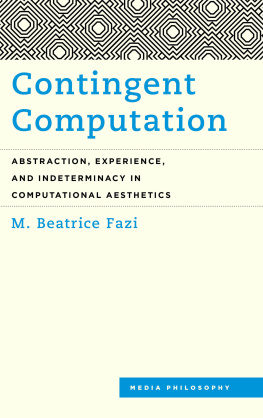

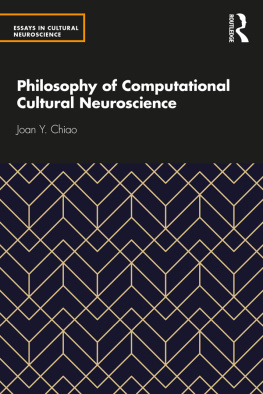
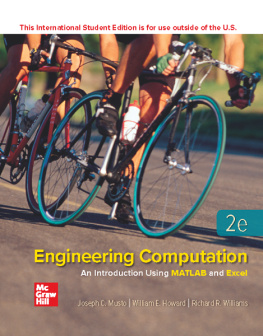
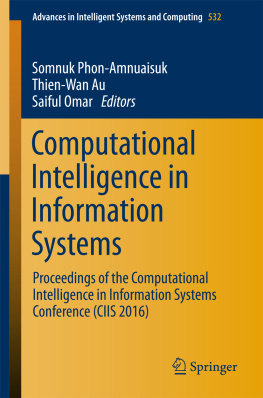
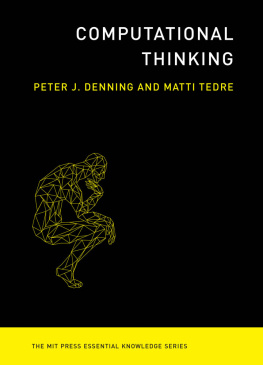
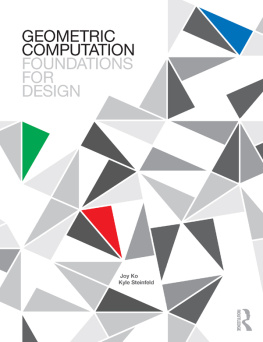
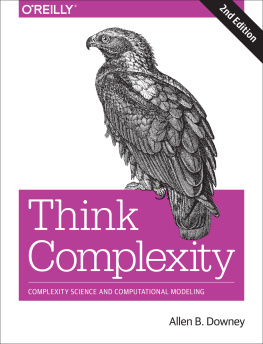
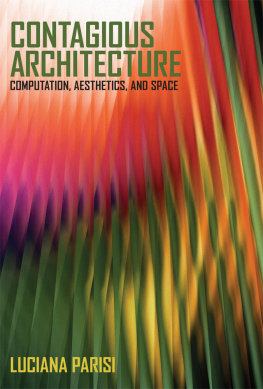
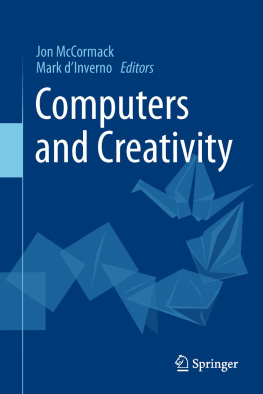

 TM The paper used in this publication meets the minimum requirements of American National Standard for Information Sciences Permanence of Paper for Printed Library Materials, ANSI/NISO Z39.48-1992.
TM The paper used in this publication meets the minimum requirements of American National Standard for Information Sciences Permanence of Paper for Printed Library Materials, ANSI/NISO Z39.48-1992.